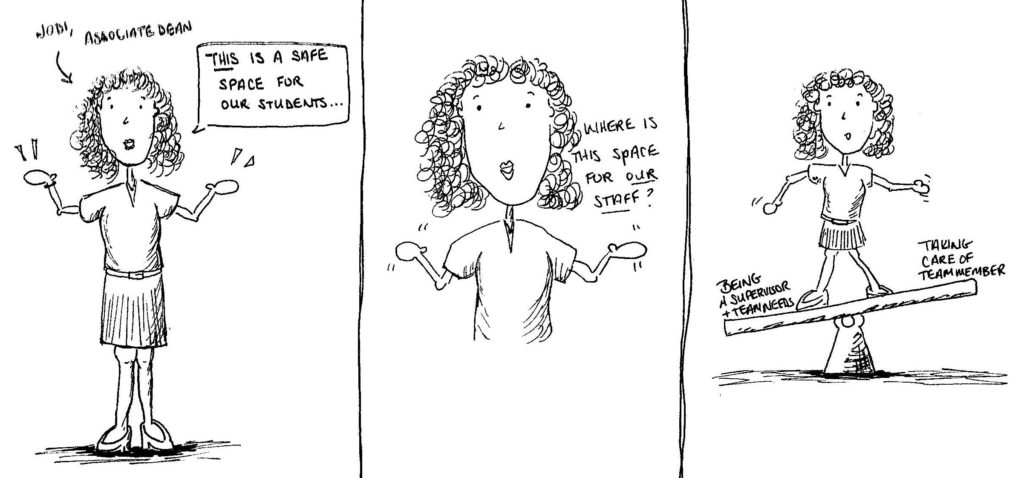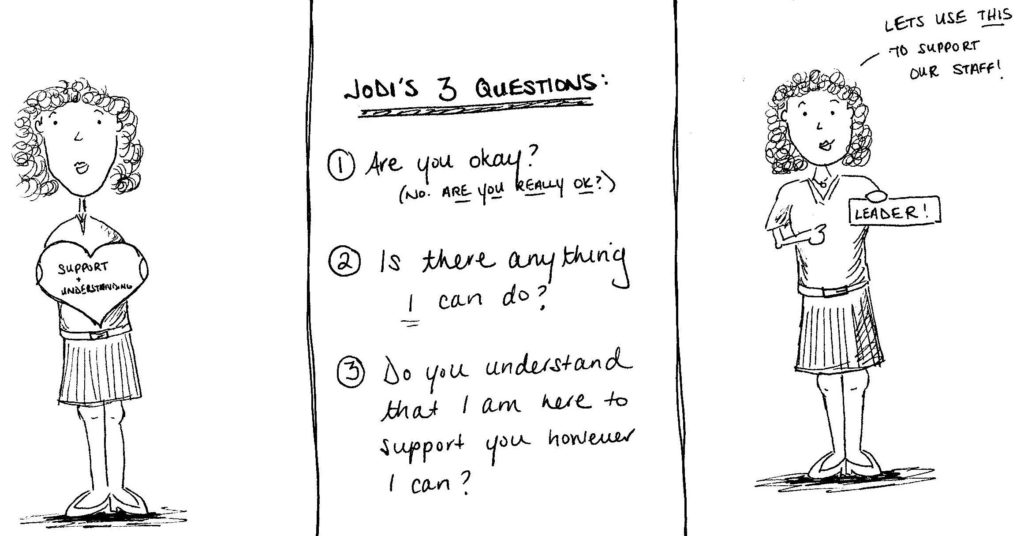by Jodi Langsfeld
As a student affairs professional, I believe it is pivotal we create an environment that is safe and supportive for our student body. I believe we are the people they should think of turning to when they need something…almost anything. And, even when we can’t personally provide them what they need, we are still here to help. We educate them on what resources are available to them, who to call, where to go, we can even make these connections for and with them. This is our job and an expectation I have for any member of the team I work with.
The question I pose is what we do when a member of our own team, the team that is creating this environment for our students, is struggling and they are not asking for help? What role do we play? The members of a student affairs team know the resources, they know the “players”, they know what they need to do. Don’t they?
I’d like to think it was that simple, but we all know it isn’t. The reasons are many. Perhaps that individual has never sought help before. They may feel they should be able to manage on their own because they always have. Maybe they are concerned about their job. Wondering if the perception will be that they can’t handle their personal life, therefore how can we trust they will handle the needs of a student body? Maybe their family validates their job because they are offering help to others but don’t personally support using resources like that. Maybe they assume the available resources are for the students, but not the employees. Maybe it is a financial concern, and they can’t imagine having another bill to pay. Perhaps it is that they are emotionally drained after dealing with students all day and just can’t find the energy to deal with anything else. No matter if it is one of the many valid concerns above, or one not listed, the real question is what can we do?

I think most people want to help another they see who needs it. As a peer, you can check in with them, see if they want to talk, encourage them to reach out to someone, access a support structure they already have established or create a new one, even simply let them know you are there for them. As a team supervisor, the relationship is slightly different. You want to do everything you would for a student or a peer but you also need to balance the needs and demands of the department and the student body with the team member you are concerned with.
How do you balance legal concerns, an individual’s workload and the running of a department with an individual’s mental health and the demands life places on all of us? I think it is important to understand that every situation, and every individual, is different, but at the core, I believe everyone is looking for the same thing: support and understanding. The next question is how do you successfully achieve providing that? What I have found are three questions I consistently ask a member of my team when I am worried about them:
Question 1) “Are you OK? No, are you really OK?” People will answer this question very quickly, and most of the time that is fine. But when you are worried about someone, you need to take a deep breath, and you need to have them take a deep breath so they understand you are sincerely asking the question, not simply doing what is socially expected.
Question 2) “Is there anything I can do?” This has to be asked sincerely, and you have to be prepared for the answer. They may ask for nothing, or they could ask for emotional support and your understanding while they are struggling, or even time off.
Question 3) “Do you understand that I am here to support you however I can? I will do anything in my power to help you, but I can only do something if you identify how I can help you.”

The responses to these questions are endless, and until an individual is ready to accept help, there is nothing we can do but continue to try to support them, continue to ask them questions and continue to remind them that we are here and they are valuable. Sometimes, all they need to know is simply that. Sometimes, they need a lot more.
As a team leader, it is my responsibility to ask questions, to ensure that my team knows that they should feel the same way the students feel about student affairs: it is a safe environment where they can come to feel supported. I hope every member of my team sees that what they have been striving to provide the student body is the same thing they have around them: good people who sincerely want to help get them through whatever it is they are going through.
Originally posted at the Student Affairs Collective on May 26, 2014.
